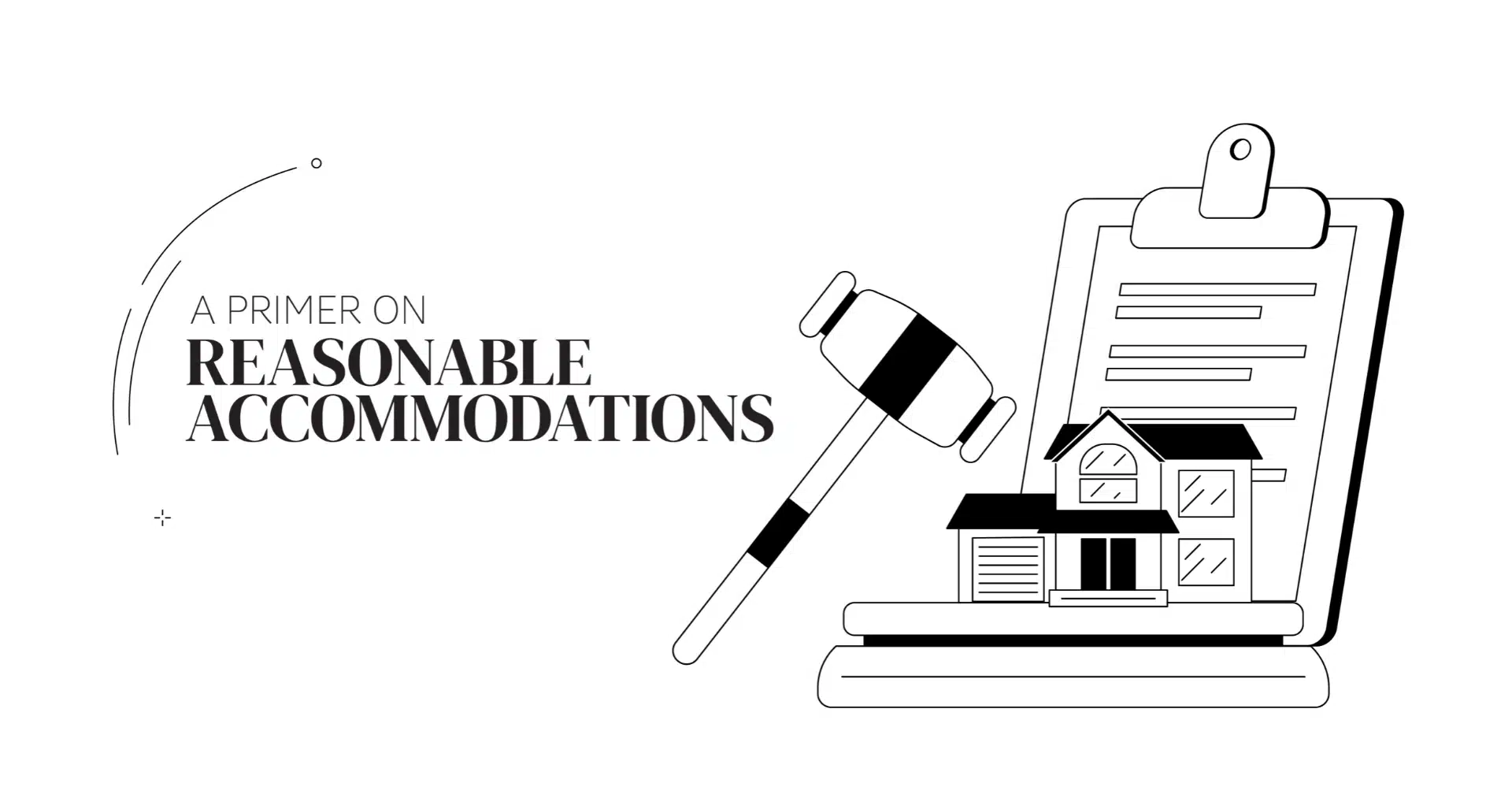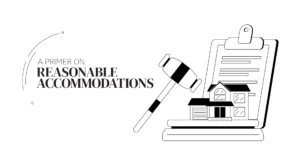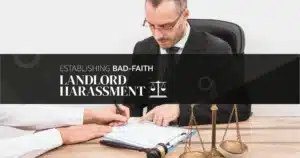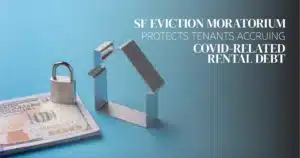In California, the Fair Employment and Housing Act (“FEHA”) prohibits discrimination and retaliation on the basis of a tenant’s protected characteristic. In the housing context, FEHA applies to real estate agents, landlords, property management companies, home sellers, mortgage lenders, housing authorities, and other housing providers. CA Gov. Code § 12955. FEHA prohibits discrimination against tenants based on their membership in a protected class. Cal Code Regs. § 12042(d). Protected classes include but are not limited to race, religion, ancestry, national origin, source of income, familial status, marital status, color, sexual orientation, gender identity, gender expression, sex, genetic information, medical conditions, mental or physical disability, age (exemption: senior and homeless use housing), weight, veteran or military status, and other arbitrary characteristics. CA Gov. Code § 12955(d).
This article will specifically discuss FEHA violations based on the wrongful denial of a reasonable accommodation or modification by a housing provider to a tenant with a physical or mental disability.
Reasonable Accommodations and Modifications
Under FEHA, it is a form of discrimination for a housing provider to refuse a tenant with a disability a reasonable accommodation or modification unless providing such would impose an undue financial and administrative burden, create a threat to the health and safety of others, fundamentally alter the housing program, or cause substantial physical damage to the property of others. Cal Code Regs. § 12176(c).
A reasonable accommodation is defined as an exception, change, or adjustment in rules, policies, practices, or services when such an accommodation may be necessary to afford the tenant with a disability an equal opportunity to use and enjoy a dwelling unit and public and common use areas, or an equal opportunity to obtain, use, or enjoy a housing opportunity. Cal Code Regs. § 12176(a). A reasonable accommodation allows a tenant to bend the rules in some way to accommodate the tenant’s disability better. Some common examples include allowing a registered service animal or emotional support animal in a unit where pets are prohibited, providing a parking spot, unit, or mailbox to a tenant who utilizes a wheelchair, or adjusting the day rent is due, where a tenant may receive income assistance.
A tenant may also request a reasonable modification from their housing provider, which is defined as a change, alteration, or addition to the physical premises of an existing housing accommodation, when such a modification may be necessary to afford the individual with a disability an equal opportunity to use and enjoy a dwelling unit and public and common use areas, or an equal opportunity to obtain, use, or enjoy a housing opportunity. Cal Code Regs. § 12176(b). A reasonable modification allows a tenant to alter the unit to allow the tenant full enjoyment of the space. Examples of reasonable modifications include adding grab bars in a shower, installing a wheelchair ramp, or installing flashing doorbells. A tenant may be required to restore their unit to its preexisting condition if reasonable. Cal. Civ Code § 54.1.
Not all reasonable accommodation or modification requests must be approved or granted to a tenant. Whether the accommodation or modification is reasonable is determined on a case-by-case basis. If a housing provider cannot provide a modification or accommodation to a tenant for a legitimate reason, they are still required to provide the tenant with good-faith alternatives that meet the tenant’s needs. For example, if the tenant’s request creates an undue expense on the housing provider, the tenant may be required to fund the request.
Disabilities Protected Under FEHA
FEHA is very broadly construed to include an expansive definition of disability. The statute defines “disability” as any physical or mental disability that limits a major life activity or makes achieving the major life activity difficult. CA Gov. Code § 12925(j)(1). A “major life activity” includes “physical, mental, and social activities and working.” CA Gov. Code § 12925(j)(1).
The statute also defines physical and mental disabilities covered by FEHA. A physical disability is defined as having a physiological disease, disorder, condition, cosmetic disfigurement, or anatomic loss that affects neurological, immunological, musculoskeletal, special sense organs, respiratory, including speech organs, cardiovascular, reproductive, digestive, genitourinary, hemic and lymphatic, skin, and endocrine systems. Cal Code Regs. § 11065(d). A mental disability includes any mental or psychological disorder or condition, including emotional or mental illness, intellectual or cognitive disability, organic brain syndrome, autism spectrum disorders, schizophrenia, and chronic or episodic conditions such as clinical depression, bipolar disorder, post-traumatic stress disorder, or specific learning disabilities. Id.
How to Request a Reasonable Modification or Accommodation
There is no formal process for requesting a modification or accommodation, and it can be made orally or in writing. Cal Code Regs. § 12176(f)(3). A tenant may request a reasonable modification or accommodation at any point in their tenancy, including during the inquiry or application process, before purchase or lease, while seeking or enjoying a housing opportunity, during the tenancy or occupancy of a housing accommodation, during litigation, at or after trial, and after judgment in appropriate circumstances. Id. A tenant may also request multiple modifications or accommodations at different points of their tenancy – they need not be made all at once. Id.
When a property manager has knowledge of a tenant’s disability, or the tenant’s disability and its relation to the request is apparent, the housing provider is prohibited from inquiring into the nature or extent of a tenant’s disability and how that relates to their request. Cal Code Regs. § 12178(a). However, a housing provider can request verification of the tenant’s disability if the disability is not apparent. Cal Code Regs. § 12178(d). If the housing provider requests verification from the tenant, the housing provider may only request information necessary to establish the tenant’s disability, describe the needed accommodation or modification, and show the relationship between the tenant’s disability and the necessity of the request. Id.
Commencing a Legal Action Alleging a FEHA Violation
FEHA provides two means by which a person may file a complaint based on alleged discrimination. A tenant may pursue their FEHA claim by filing an administrative complaint through the California Civil Rights Department or by filing a legal complaint and initiating a lawsuit. There are different requirements and protocols depending on which method is pursued.
A plaintiff filing a legal complaint under FEHA bears the initial burden of proving that the alleged discrimination occurred. Cal Code Regs. § 12042. For all FEHA claims, the plaintiff must prove they are a protected class member. Cal Code Regs. § 12042(d). A tenant alleging discrimination based on their housing provider’s failure to provide an accommodation or modification must show that (1) they suffer from a physical or mental disability; (2) the housing provider knew of the disability or should reasonably be expected to know of it; (3) the accommodation or modification may be necessary to afford the plaintiff an equal opportunity to use and enjoy the dwelling; and (4) the housing provider refused to make the accommodation or modification. U.S. v. California Mobile Home Park Management Co., 107 F.3d 1374, 1380 (9th Cir. 1997).
An aggrieved tenant must initiate their lawsuit within two (2) years from either (a) the date of the alleged discrimination or (b) the date that the tenant discovered the alleged discrimination, whichever date is later. CA Gov. Code § 1289.1(a). Absent good cause to prolong this period, a person is barred from bringing a FEHA claim outside the two years. Id.
If successful, FEHA allows a tenant to recover actual damages, emotional distress damages, punitive damages, and reasonable attorney’s fees and costs. CA Gov. Code § 1289.2. In some cases, a court may grant other types of relief, such as the issuance of a temporary or permanent injunction, a temporary restraining order, or other order deemed appropriate to preclude the housing provider from any further acts of discrimination. Id.
Evidence of discriminatory acts by a housing provider may be challenging to obtain. Therefore, it is crucial that a tenant who is seeking an accommodation document their request in writing. In fact, as a general rule, a tenant should keep copies of all written communications between themselves and their housing provider, including but not limited to emails, letters, text messages, and memorandums.
If you believe your housing provider is engaging in discrimination based on your disability, we encourage you to contact us today at (628) 200-3018 or fill out our intake form.






